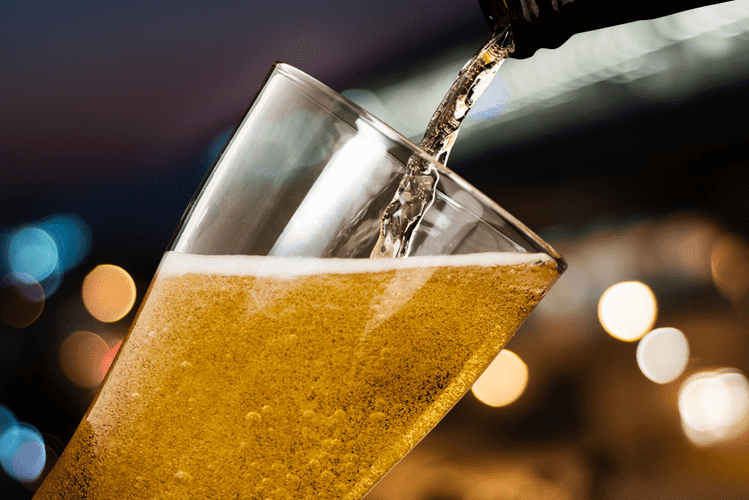It often raises many questions, especially regarding effective strategies for managing symptoms and ensuring safety. Let’s address some of the most frequently asked questions about alcohol https://toputop.com/partner-sober-homes-9/ withdrawal, providing insight into different aspects such as medication, home remedies, dietary considerations and more. One important thing to do when addressing alcohol withdrawal is to distance yourself from enablers and any drinking advocates that are in your life. They often will minimize your addiction by telling you it’s not that big of a deal.

Alcohol withdrawal symptom timeline
You may want to take a family member or friend along, if possible. On average, an alcoholic who doesn’t stop drinking can expect to decrease his or her life expectancy by at least 15 years. The following list of medications are related to or used in the treatment of this condition.

Coping and support
Ambulatory withdrawal treatment should include supportive care and pharmacotherapy as appropriate. Benzodiazepines are first-line therapy for moderate to severe symptoms, with carbamazepine and gabapentin as potential adjunctive or alternative therapies. Physicians should monitor outpatients with alcohol withdrawal syndrome daily for up to five days after their last drink to verify symptom improvement and to evaluate the need for additional treatment. Primary care physicians should offer to initiate long-term treatment for alcohol use disorder, including pharmacotherapy, in addition to withdrawal management. Alcohol consumption spans a spectrum from low-risk to severe alcohol use disorder (AUD). Alcohol withdrawal syndrome poses a significant clinical challenge arising from the spectrum of AUD—a prevalent condition affecting a substantial portion of the United States population.
Groups for Family and Friends
Symptoms outside of the anticipated Halfway house withdrawal period or resumption of alcohol use also warrants referral to an addiction specialist or inpatient treatment program. Vitamins B1 (thiamine), B9 (folate), B12 and C are often recommended to aid recovery. These vitamins and minerals help support nerve function and overall health, which can be compromised due to long-term alcohol use. However, it’s important to consult a healthcare provider before starting any supplements, as they can advise on the most appropriate regimen based on individual health needs. Healthcare providers typically prescribe short-term medications to relieve the symptoms of mild to moderate alcohol withdrawal.
If you are developing your own symptoms of depression or anxiety, think about seeking professional help for yourself. Remember that your loved one is ultimately responsible for managing their own illness. Also known as «alcohol counseling,» behavioral treatments involve working with a health care provider to identify and help change the behaviors that lead to alcohol problems. Anyone who thinks they may have alcohol use disorder needs to speak with a healthcare professional. The most effective way to prevent alcohol withdrawal syndrome is to avoid drinking or drinking only in moderation.
- People with frequent seizures or delirium tremens need intensive care in a hospital setting during alcohol withdrawal.
- Maintaining a calm and comfortable environment, staying hydrated and avoiding stimulants like caffeine is also helpful.
- Risk factors for alcohol use disorder include a family history of issues with alcohol, depression and other mental health conditions, and genetic factors.
- Delirium tremens (DTs) is a serious condition that some people struggling with alcohol withdrawal go through.
Treatments Led by Health Care Providers
Alcohol withdrawal is dangerous due to the potential for severe complications that arise when an individual with alcohol dependence abruptly stops or significantly reduces their alcohol intake. One of the most serious risks is the development of seizures, which occur within 12 to 48 hours after cessation and lead to further health complications if not promptly managed. Treatment depends on severity, where mild alcohol withdrawal cure cases are managed at home with hydration, nutrition, and symptom-relief meds. Moderate to severe cases need inpatient treatment, monitoring, and benzodiazepines to prevent serious complications.
Ongoing Treatment and Rehabilitation

Here’s some information to help you get ready for your appointment, and what to expect from your health care provider or mental health provider. In delirium tremens, the brain is not able to smoothly readjust its chemistry after alcohol is stopped. This creates a state of temporary confusion and leads to dangerous changes in the way your brain regulates your circulation and breathing.
- The frequency and setting for outpatient monitoring of AWS should be guided by symptom severity, risk of complications, and social factors, including reliable social support and a safe home environment.
- Misusing alcohol, including binge drinking and heavy alcohol use, puts you at risk for alcohol withdrawal syndrome.
Alcohol withdrawal is a serious condition that can lead to death if not treated or monitored properly. If you think you are experiencing severe alcohol withdrawal or DT, call your doctor or seek emergency services as soon as possible. More than 1.5 million people in the United States enter outpatient or inpatient alcohol treatment due to the medical consequences of alcohol dependence. Terms of UseThe information on this website is for general information purposes only.